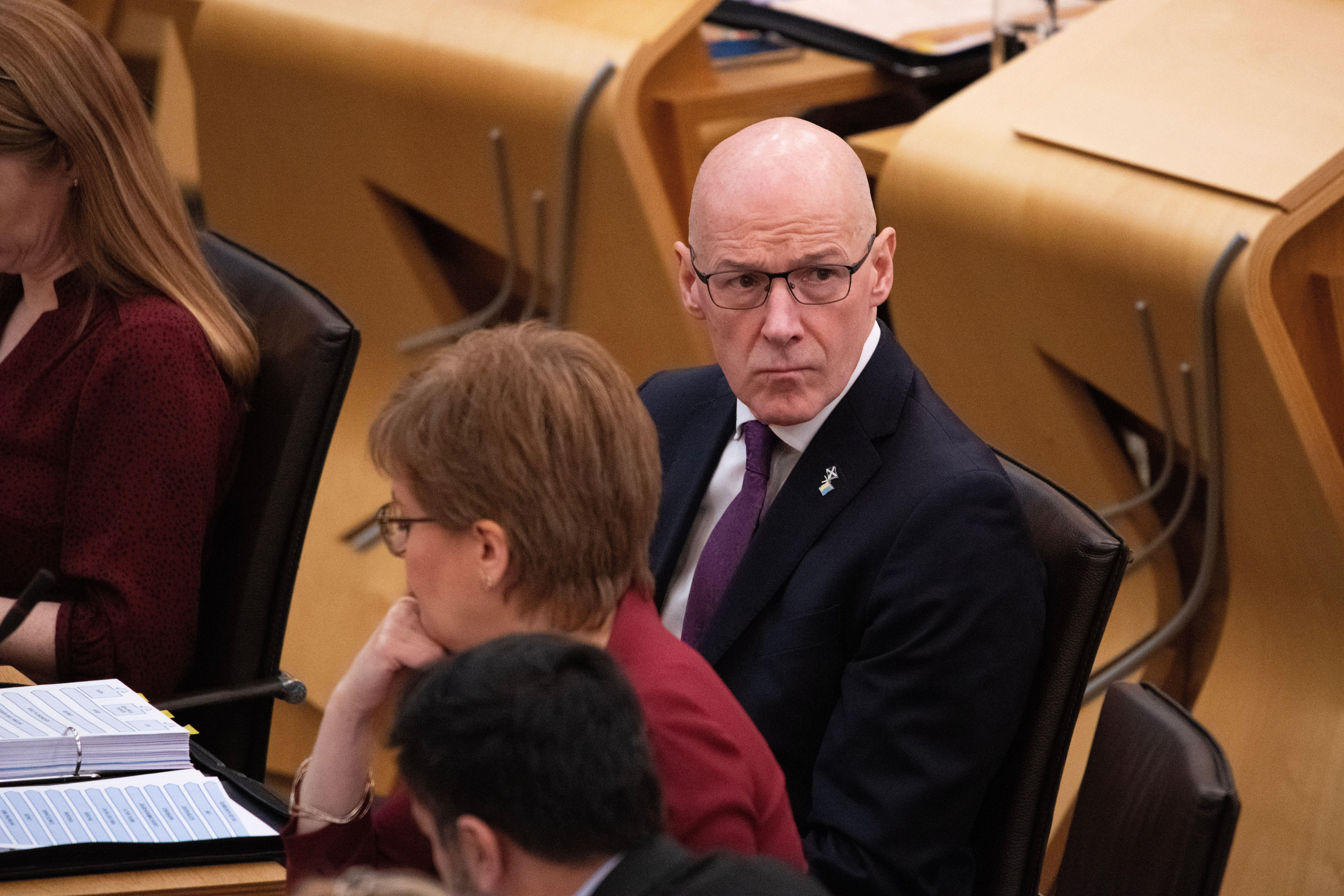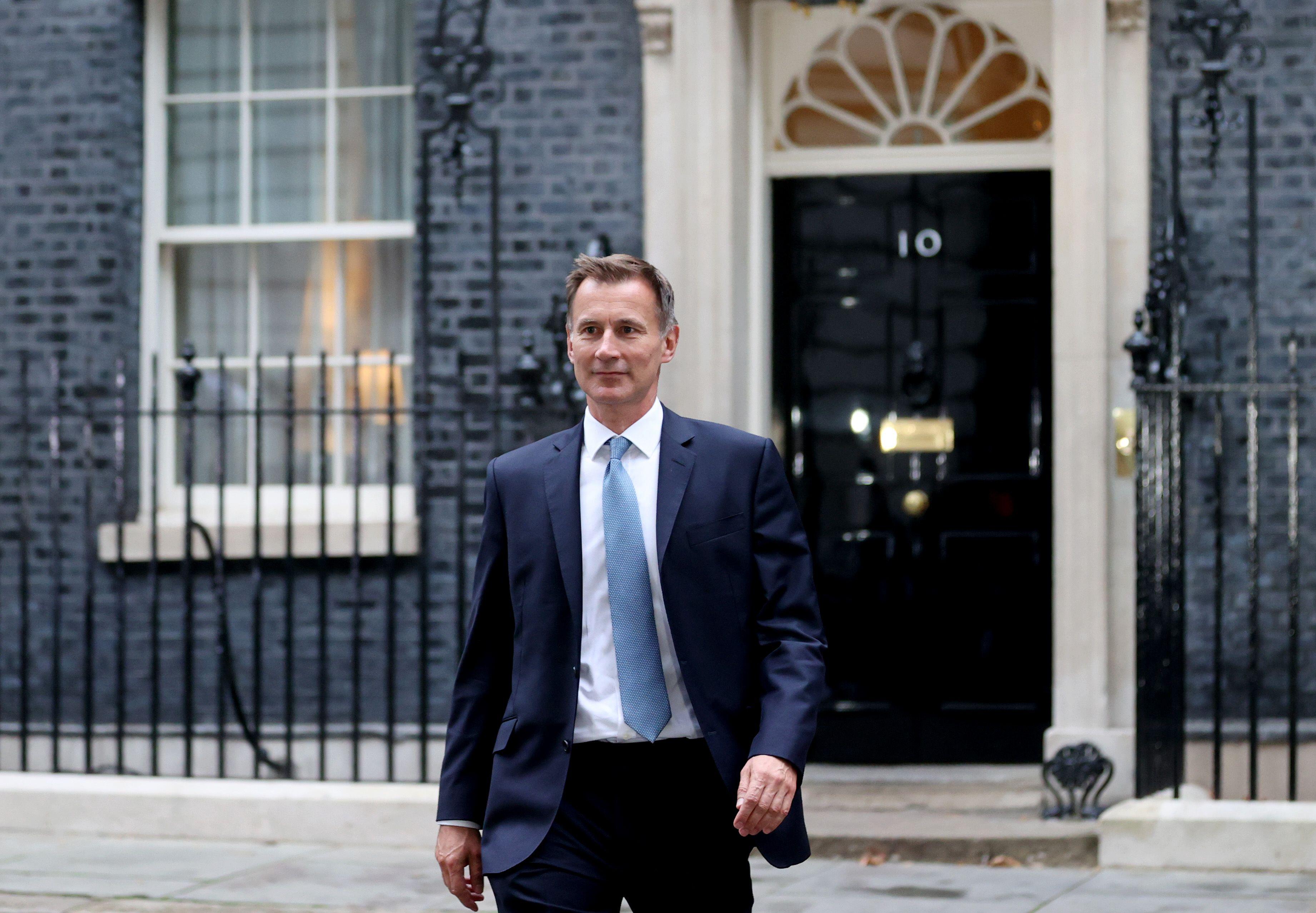Gloomy forecast: Scotland in the economic storm
As good news goes, it’s still pretty bad.
The UK will enter recession this year, the Bank of England says, but the slump will be shorter and less severe than was previously feared.
Raising interest rates to four per cent, the bank predicted the downturn will last just over one year, not the near-two years previously forecast, with fewer job losses as a result. There will be no return to pre-Covid conditions until 2026, but there has been a “turning of the corner” on inflation, its governor Andrew Bailey said.
Although this report was cheerier than projections made before Christmas, it is more pessimistic than those from the International Monetary Fund (IMF), which suggest the UK will perform worse than sanctions-hit Russia this year, becoming the only major economy to contract.
That’s after a turbulent 2022 in which Liz Truss managed to achieve lasting economic damage during her 49-day term. And it has created very difficult circumstances for government. Deputy First Minister John Swinney has said he is “wrestling” with an estimated £100m overspend and there are precious few weeks left to balance the books.
Administrations in Edinburgh and London face intense pressure to raise public sector pay, support household finances and pump resources into beleaguered health services. The cost-of-living crisis has mobilised trade unions at a level unseen for decades, sparking industrial action across the public sector, and councils warn of swingeing cuts to the services communities rely on.
It is, Swinney has said, an “exceptionally difficult fiscal landscape”. The acting finance secretary confirmed more than £1bn of “savings” in his emergency budget review in November, telling MSPs he was “compelled” to act “in the absence of additional funding from the UK Government”. This month he assured MSPs that his Budget commits “substantial resources” to support families, public services and businesses “through these difficulties”.

That was hours after a leaked Cosla (Convention of Scottish Local Authorities) report outlined the potential loss of 7,100 full-time equivalent council jobs over the next three years, based on figures from 23 of the country’s 32 local governments. The organisation has repeatedly warned that its members face a £600m funding gap and, without additional cash, job losses are “inevitable” – something it argues will hit local communities and economies hard.
Meanwhile, pay disputes with health workers, teachers and civil servants are ongoing, and there remains concern over whether the Scottish Government can find a solution without also producing cash it says it does not have.
The administration says the £13.2bn earmarked for councils includes an increase of more than £570m. That, the Scottish Government says, is a real terms increase of 1.3 per cent. But according to the Institute for Fiscal Studies (IFS), the outlook for local government finances is far from rosy. Grant funding will fall by 0.8 per cent in real terms this April, it claims, and even hiking council tax by five percent would leave authorities 0.3 per cent down overall.
Cuts to councils in Scotland were smaller than those in England during the 2010s, allowing a “substantial” increase in spending on schools and early years childcare, but the IFS now expects a “reversal of fortunes” over the next two years that will leave Scotland’s authorities worse off.
Behind the events that have contributed to the fiscal trouble – Covid, the Russian war on Ukraine, Trussonomics – there remain long-seated issues that restrict economic performance and give governments less wiggle room.
The UK has long lagged behind competitors on both productivity and growth, with Scotland trailing the UK. It’s something Sandy Begbie, chief executive of Scottish Financial Enterprise, is troubled by. His organisation is working with others on a manifesto, due before summer, aimed at closing the gap between Scotland and the rest of the UK.

Begbie, a former Tesco Bank executive, says there needs to be a focus on “how we get real momentum”. “Even pre-Covid and Russia/Ukraine our economic growth was pretty poor,” he tells Holyrood. “Governments have been struggling to come up with an answer.”
“We don’t really try and pick winners in the economy and really put the weight behind them,” he goes on, arguing that investment should be focused on the most promising sectors. “If you put one chip on every number on the roulette wheel, you’ll win a little bit, but you’ll never win enough to really move the dial.”
It is about, Begbie says, building resilience into the economy. “We have one million people earning around £15,000-25,000 a year. Our average wage is lower than in the rest of the UK. We need to attract higher-paid jobs to Scotland to build longer-term, better resilience.”
Financial services, which pays an average salary of £40,000 per annum and contributes 10 per cent of Scotland’s GDP, currently has a headcount of around 150,000 people. Begbie believes it has the potential to grow by another 50,000 as employers take advantage of a strong skills base, hybrid working and lower costs. “It’s cheaper for them to recruit a risk manager here than it is in London,” he says. “What bold steps do we need to take to really sell Scotland as a global and regional centre for financial services? We need to make sure there is an incentive in place for business to come and set up.”
Fraser of Allander Institute director Mairi Spowage agrees there has been “really poor growth across the UK since the financial crash” of 2008, and productivity “wasn’t doing well for a few years before” that. “Productivity is quite an amorphous thing, but the things that contribute are really about investment,” Spowage says, and the UK “doesn’t do well” when compared to other nations – and hasn’t for about 20 years.
Research and development investment is lower still in Scotland than the rest of the UK, she says, as are export levels. That’s been the focus of various promotional plans, leading up to the Scottish Government’s current Trading Nations Strategy.

But for an across-the-board lift for Scotland’s economy, Spowage suggests an increased emphasis on skills and training. Prime Minister Rishi Sunak wants all English pupils to study maths until the age of 18 to address deficiencies in numeracy there, but Spowage is sceptical that this alone will add up to a stronger economy in the long term. “I doubt that the solution is as simple as that,” she says.
“Skilling-up young people is a very important part of improving productivity, but we have to come back to the labour market challenge and the tight labour market. We don’t have enough people to do all the jobs that we want them to do. Even the people we do have don’t always have the skills employers want. It’s also about people all the way through the age profile of the labour market and how we help them gain new skills.”
Spowage says we must also look at lesser acknowledged Covid impacts, including the loss of workers from the labour market, on where we are now. In December, a House of Lords report found economic inactivity had increased by 565,000 people since the pandemic started, with early retirement also given as a factor and the loss of workers aged 50-plus said to be making it harder to control inflation and improve growth.
Separately, the IFS looked at whether worsening health was driving economic activity down. Inactivity due to long-term sickness or disability for 50-64-year-olds rose from nine per cent in the last quarter of 2019 to 10.1 per cent in the first quarter of 2022.
Amid calls to inject more cash into healthcare, Spowage says we should be mindful that there is a fiscal, as well as a human, cost when public health suffers. “It can potentially remove productive members from the labour force, so that, instead of working and paying tax, people are instead claiming benefits.” The Scottish Parliament’s Covid-19 Recovery Committee said similar in its recent report, which set out that mental health and chronic pain “are having the most significant impact on economic inactivity rates”.
The Scottish Government, Spowage says, is “probably hoping that the UK Government will loosen the purse strings more than set out during the autumn statement” when Jeremy Hunt delivers his Budget statement on 15 March. He’s already said he’ll “resist” tax cuts in order to achieve the sought-after fall in inflation.

Indeed, cutting inflation, reducing national debt and growing the economy are Sunak’s top three (of five) key pledges to voters. Many expect the first of these to happen anyway due to an easing of energy costs, with the Office for Budget Responsibility predicting inflation will fall to 3.75 per cent this year. “Some of this is definitional,” says Spowage, pointing to the “big price shock” that happened last spring after Russia attacked Ukraine. “If you start comparing to after that happened, the higher price level inflation will come down by definition. The government will want to take credit for that, but they’re certainly not taking the blame for it going up.”
And so where does that leave Scotland’s finances? One of the biggest question marks, Spowage says, is whether the Scottish Government meets the pay demands of public sector workers to avoid disruption to schools, healthcare, and other services – something which will have major implications for the economy as a whole.
“They have chosen not to set out their approach to public sector pay for the next financial year, which will be because of the uncertainty. That means that the picture for 2023-24 is a bit uncertain. It depends where they end up.”
Holyrood Newsletters
Holyrood provides comprehensive coverage of Scottish politics, offering award-winning reporting and analysis: Subscribe